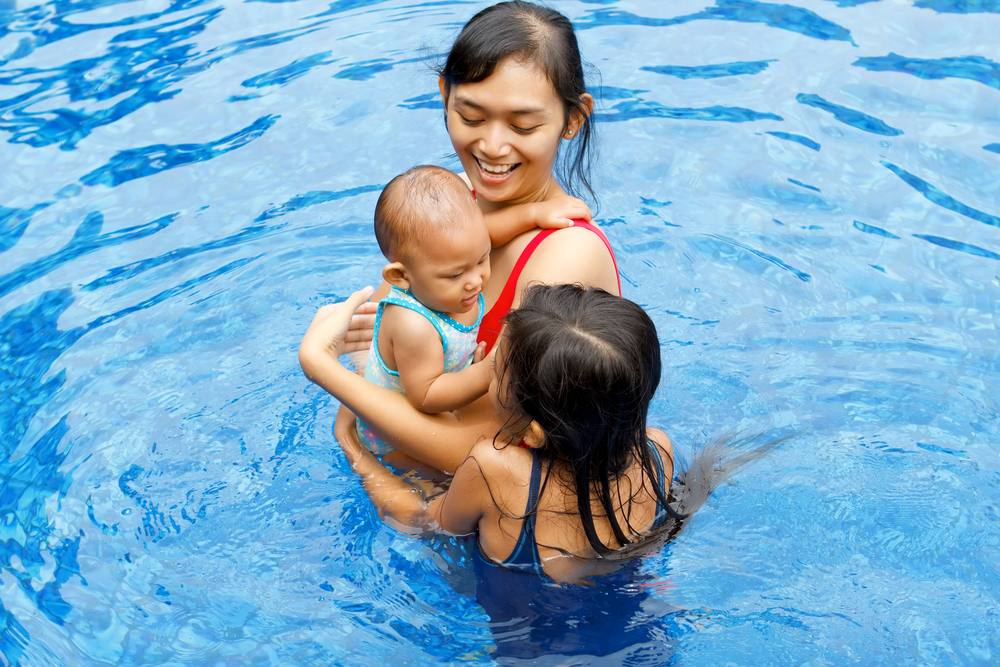-
Diversity
Mayo Clinic Q and A: Swimming safety for children

DEAR MAYO CLINIC: A friend and I were talking about the risks of swimming and water safety for young children. I have a toddler and a 4-year-old, and I'm curious about when it's safe to swim, the risk of getting sick, and the need for goggles and earplugs.
ANSWER: For many people, the hot summer days are often spent swimming at the pool. But before you help your child suit up, it's important to consider practical tips to keep your child safe. Below are some common questions about children and water safety.
What's the best age to begin swimming lessons?
Many kids learn to ride a bike and to swim on their own at the same age — often the summer before kindergarten. The American Academy of Pediatrics supports swimming lessons for most children 4 and older.
If you enroll a child younger than age 4 in a swimming program, pick one that requires parental involvement, has qualified teachers and a fun atmosphere, and involves a limited number of underwater submersions. This will limit the amount of water your child might swallow.
Can children swim when they're sick?
It's fine for children who have colds or other minor illnesses to swim so long as they feel well enough to do so. If your child has diarrhea, is vomiting, has a fever, or is diagnosed with COVID-19 or another infectious illness, he or she should stay out of the water.
Can babies or toddlers wear diapers in the water?
Swim diapers and swim pants are water-repellent and fit snugly around a child's thighs and waist, but they're not waterproof. If your child has a bowel movement in the water, fecal material might escape the diaper.
A dirty diaper might contain diarrhea-causing germs, including the parasite cryptosporidium, which can contaminate pool water or other swimming areas. In otherwise healthy people, a cryptosporidium infection causes diarrhea. The consequences can be more severe for people who have weak immune systems.
Urine in the water is less risky than feces, but it's difficult to separate the two when children wear diapers. If you allow your child to swim in a diaper, take breaks to change the diaper in the bathroom or use the toilet. Don't allow swimming if your child has diarrhea.
Is it risky for children to swallow pool water?
Your child is bound to gulp pool water at one time or another, especially when first learning to swim. A little swallowed pool water isn't typically a cause for concern, but too much pool water can lead to illness. Encourage your child to spit out any water that gets in his or her mouth.
Can children who have casts go swimming?
It depends on the type of cast. If your child has a plaster cast over cloth wrapping, he or she must stay out of the water. Wrapping a plaster cast with plastic bags generally isn't effective. However, if your child has a fiberglass cast that's lined with a water-repellent liner, it's usually OK to swim — as long as you have the health care provider's OK. After swimming, it's important to thoroughly rinse the inside of the cast with clean water.
Can children swim if they have ear tubes?
If your child has ear tubes, it's best to ask his or her health care provider about ear protection during swimming. Some health care providers recommend that children who have ear tubes wear earplugs while swimming to prevent bacteria from entering the middle ear. However, routine use of earplugs might only be needed when children dive or swim in untreated water, such as lakes and rivers.
What's the best way to prevent swimmer's ear?
Swimmer's ear — also known as otitis externa — is an infection of the outer ear canal that occurs if water remains in the ear after swimming.
To prevent swimmer's ear:
- Keep ears dry.
Encourage your child to wear earplugs while swimming. After swimming, dry your child's ears by wiping the outer ears gently with a soft towel or use a hair dryer on the lowest setting, holding it at least a foot away from the ear. - Use a preventive treatment.
As long as your child doesn't have punctured eardrums, using over-the-counter preventive solutions or making homemade eardrops before and after swimming can reduce risk for swimmer's ear. - Avoid putting foreign objects in your child's ear.
Cotton swabs can pack material deeper into the ear canal, irritate the thin skin inside the ear or break the skin.
How do I prevent red eyes? Are goggles a must?
Exposure to chlorine might leave your child with red eyes. To prevent red or puffy eyes, encourage your child to wear goggles while swimming and avoid opening his or her eyes underwater. To ease discomfort and reduce redness after swimming, rinse your child's eyes with a sterile eyewash or an artificial tears solution.
Is it OK to swim after eating?
While it may not be the most comfortable thing to go for a swim with a full belly, this is not a dangerous activity.
With young children, the biggest concern with swimming and safety is staying alert. Make sure you are always nearby and be prepared to act in case of an emergency. — Compiled by Mayo Clinic staff
****************************
Related Articles
- Swimming for better health and to avoid injuries published 8/13/21
- Infant swimming: Do indoor pools increase asthma risk? published 8/18/20







